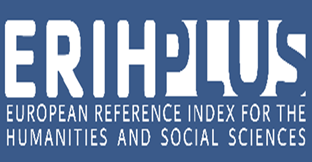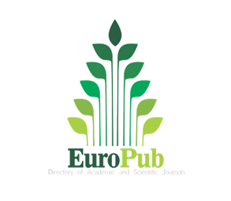Scientific debate about the genre of the Orkhon-Yenisei inscriptions
Views: 646 / PDF downloads: 446
DOI:
https://doi.org/10.32523/2664-5157-2021-4-98-111Keywords:
Orkhon-Yenisei inscriptions, history, written monument, historical document, historiographic dispute, composition, prose, poetry, epic, mixing genres, a novel in verseAbstract
This paper attempts to define the genre of the Orkhon-Yenisei Old Turkic inscriptions. The Orkhon -Yenisei inscriptions, found in the territory of modern Mongolia, attracted researchers’ attention in two directions. First, the interest was shown in scientific field, and then in the field of fiction. Along with the historiography, the Orkhon-Yenisei inscriptions have been studied from a cultural point of view, as well as from the point of view of literary criticism. Today Azerbaijani, Turkish and Russian scientists still dispute about the genre of the Orkhon-Yenisei written monuments. Different views have been expressed on the genre of the Orkhon-Yenisei written monuments. The researchers emphasize The Old Turkic written monuments emphasized the fact of the presence of researchers in the rhythm of folk poetry and “weighty verses”. Taking into consideration the feature of narrative written in verses and the connection with a folk poetry, a number of researchers define these inscriptions as poems in prose (F.E. Korsh, Amid Abid). Other authors note that the inscriptions are “a small literary work” (Vasfi Mahir Gochatürk). Furthermore, the inscriptions are considered “a small literary work”, “common Turkic historical heroic poems”, “epitaphs”, “graveyard poetry”, “a
separate genre”, “prose texts”, “historical legend”, “prose in verses” etc.
The Orkhon-Yenisei inscriptions manifest themselves as a mixture of prose and poetry, which is characteristic of the Turkic epic. We find the perfect example of this tradition in the epic Kitabi Dede Gorgud, a common Turkic monument. That is, a combination of prose and poetry. The Yenisei epitaphs, the Orkhon “Bangu stones” attract attention as the direction in which the Orkhon-Yenisei inscriptions will study the poetics of ancient Turkic literature. Although the Orkhon-Yenisei monuments were studied as texts of poems, epitaphs, epics, chronicles, stories, novels, stories, etc. Orkhon-Yenisei monuments should not be considered as an example of epitaphs. The Orkhon-Yenisei Inscriptions is a historical-documentary novel of poetry, combining genre features of different genres. The existence of such novels of poetry as the Orkhon-Yenisei inscriptions created the conditions for the creation of meaningful novels of poetry during the Eastern Renaissance. The creation of a novel of verses by Nizami Ganjavi in the XII century confirms this.
Downloads
Reference
Musaxanlı Atababa, Türk әdәbiyyatının inkişaf xüsusiyyәtlәri, Әdәbiyyatdan iş kitabı, Birinci hissә. Baku, Azәrnәşr, 1928. 294 p. [in Azerbaijani].
Hәbibbәyli İsa. «Tonyukuk» yazılı mәtnlәri türk xalqının qәhrәmanlığına ucaldılmış әbәdi abidәdi. In: https://turkustan.info/2020/04/25/isa-h%C9%99bibb%C9%99yli-tonyukuk-yazili-m%C9%99tnl%C9%99ri-turk-xalqinin-q%C9%99hr%C9%99manligina-ucaldilmis-%C9%99b%C9%99di-abid%C9%99di/.[in Azerbaijani].
Osmanlı Vәli. Qәdim türk әdәbiyyatı (VI-X әsrlәr). Baku, Sabah, 2008. 244 p. [in Azerbaijani].
Melioranskiy P.M. Ob orhonskih i eniseyskih nadgrobnyih pamyatnikah s nadpisyami. Zhurnal Ministerstvo norodnogo prosvescheniya. IMNP, ch. CCCXVII. [About Orkhon and Yenisei tombstones with
inscriptions. Journal of the Ministry of Public Education. IMNP Part CCCXVII]. 1898, Juny, otd. 2. P. 263-292. [in Russian].
Zarubezhnaya tyurkologiya. Vyip. I. Drevnie tyurkskie yazyiki i literaturyi. Otvetstvennyiy redaktor akad. A.N. Kononov. Sostavitel S.G. Klyashtornyiy [Foreign Turkology. Issue I. Ancient Turkic languages and literatures // Executive editor acad. A.N. Kononov. Compiled by S.G. Klyashtorny]. Moscow, GRVL, 1986. 384 p. [in Russian].
Nazim Әli. Әdәbiyyatımız vә әdәbiyyat tariximiz. In: “Yeni yol” qәzeti. 10.11.1925. [in Azerbaijani].
Çobanzadә Bәkir. Türk әdәbiyyatı. Baku, Azәrnәşr, 1929. 81 p. [in Azerbaijani].
Hacıyev Tofiq. Orxon-Yenisei abidәlәri: janr xüsusiyyәtlәri. In: Dәdә Qorqud (Toplu). 2004. No1. P. 29-47. [in Azerbaijani].
Әlibәyzadә Elmәddin. “Azәrbaycan әdәbiyyatı tarixi” (әn qәdim dövrlәr). Baku, Qarabağ, 2009. 828 p. [in Azerbaijani].
Ergin Müharrem. Orhun abideleri. İstanbul, Boğaziçi Yayınları No: 95, Kırldkinci Baskı, Eylül, 2009. 186 p. [in Turkish].
Ergin Müharrem. Orhun abideleri. İstanbul, Baskı, Boğaziçi yayımları, 1998. 189 p. [in Turkish].
Feyziyev Cavanşir. Orhon yazılı abidәlәri: dövlәtçilik şüuru vә siyasi realizm. In: https://cavansir.feyziyev.com/bloq/elmi/dovletcilik-shuuru-ve-siyasi-realizm.php. [in Azerbaijani].
Cәfәrov Nizami. Qәdim türk әdәbiyyatı. Baku, AzAtaM, 2004. 324 p. [in Azerbaijani].
Hәbibbәyli İsa. Ortaq yazılı әdәbiyyat mәrhәlәsi. In: 525-ci qәzet. 13 noyabr 2017. https://525.az/site/?name=xeber&duzelis=0&news_id=89505#gsc.tab=0. [in Azerbaijani].
Tyurkologicheskij sbornik [Turkological collection]. Moscow, 1970. 288 p. [in Russian].
Stebleva I.V. Poeziya tyurkov VI-VIII vekov [Poetry of the Turks of the 6th-8th centuries]. Moscow, Glav. red. vostochnoj lit-ry, 1965. 146 p. [in Russian].
Korsh F.E. Drevneyshiy narodnyiy stih turetskih plemen. Ottisk iz «Zapisok Vostochnogo otd. russk. arh. ob-va» [Tekst] [The oldest folk verse of the Turkish tribes. An imprint from the «Notes of the Eastern Department of the Russian Arch. Society» [Text]]. Saint-Petersburg, 1909. Vol. XIX. P. 140-142. [in Russian].
Rәcәbov Әbülfәz, Mәmmәdov Yunis. Orxan Yenisei abidәlәri. Baku, Yazıçı, 1993. 345 p. [in Azerbaijani].
Aydarov Gubaydulla. Bibliograficheskiy ukazatel literaturyi po eniseysko-orhonskim i talasskim pamyatnikam drevnetyurkskoy pismennosti. otv. red. A. K. Kuryishzhanov; Akad. nauk KazSSR, In-t yazyikoznaniya [Bibliographic index of literature on the Yenisei-Orkhon and Talas monuments of ancient Turkic writing // executive editor A.K. Kuryshzhanov; Acad. sciences KazSSR, Institute of linguistics]. Alma-Ata, Nauka KazSSR, 1979. 145 p. [in Russian].
Banarlı Nihad Sami. Resimli Türk edebiyatı tarihi, 1. İstanbul, Milli Eğitim Bakanlığı Yayınları, 1971. 664 p. [in Turkish].
Qrousset Rene. Bozkur imparatorluğu. İstanbul, Ötüken Neşriyat, 1993. 632 p. [in Azerbaijani].
Bayat Füzuli. Әski türk abidәlәrinin yaranmasında dastan tәfәkkürü vә dastan üslubu. In: “Ortaq türk keçmişindәn ortaq türk gәlәcәyinә” VI Uluslarası folklor konfransının materialları. Baku, 25-26 noyabr 2010. P.198-202. [in Azerbaijani].
Malov S.U. Enisejskaya pis’mennost’ tyurkov [Yenisei writing of the Turks]. Moscow-Leningrad, Izd-vo Akademii Nauk SSSR, 1952. 116 p. [in Russian].
Downloads
Published
How to Cite
Issue
Section
License
Copyright (c) 2022 Turkic Studies Journals

This work is licensed under a Creative Commons Attribution-NonCommercial 4.0 International License.
























